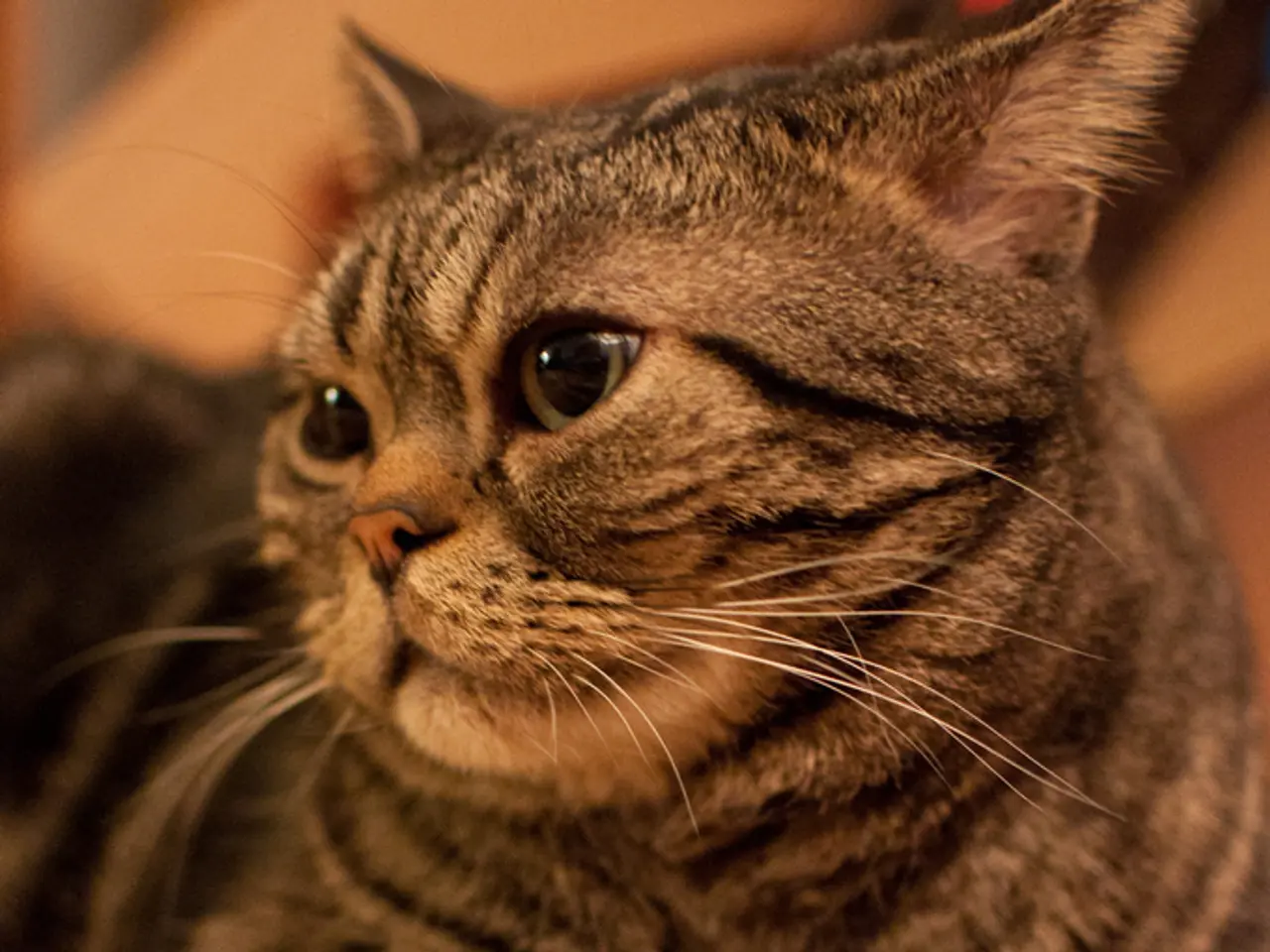Feline Urination Problems Explained: Causes and Solutions to Stop Them
In the world of feline companionship, cat spraying can be a common and frustrating issue. This article aims to shed light on the causes, signs, and solutions for this behaviour.
Cats may start spraying when they reach sexual maturity, typically around 6 months of age, or social maturity around 2 years old. It's important to note that cat spraying is often not related to the litter box itself, but rather a response to environmental dynamics.
Sprayed urine contains pheromones that communicate vital information about the sprayer, such as status, sex, mating availability, and territorial claims. This behaviour is a method of communication among cats to find mates, claim territory, and respond to perceived threats.
Changes in a cat's environment can lead to spraying. This could be due to seeing other cats outside, the introduction of new pets, people, or construction within the home. In multi-cat households, competition can cause anxiety that leads to cat spraying, and the likelihood of spraying increases in proportion with the number of cats in the home.
To stabilize the environment and reduce spraying in cats, owners should provide multiple clean litter boxes (ideally one more than the number of cats). These should be placed in quiet areas and cleaned regularly. It's also crucial to rule out medical causes by visiting a vet, and reducing stress by creating safe retreat spots for your cat. Importantly, cats should never be punished for spraying, as it has underlying causes like stress or illness.
Synthetic pheromones, such as Feliway, can help reduce cat anxiety and, in turn, stop spraying. Cleaning up any remnants of urine using an enzymatic urine cleanser can prevent spraying in that area.
Neutering may reduce the likelihood of spraying, but it's not a guarantee. About 10 percent of neutered males and 5 percent of spayed females continue to spray. Intact males will spray due to higher levels of hormones like testosterone, while some intact females will spray as a normal mating behaviour. Spraying from a neutered cat may be a warning sign that he feels threatened.
Veterinarians recommend maintaining one litter box per cat plus one more in multi-cat households. In addition, providing a stable home environment can help reduce cat spraying, making life more comfortable for both you and your feline friend.








